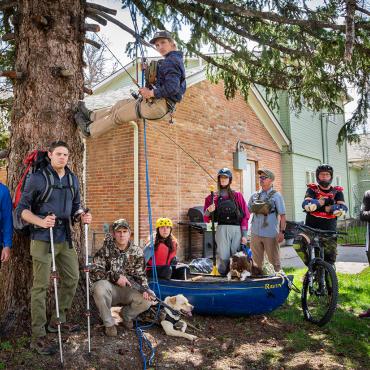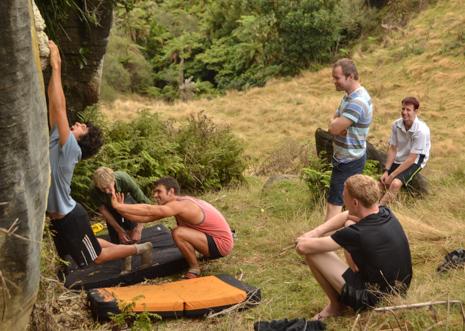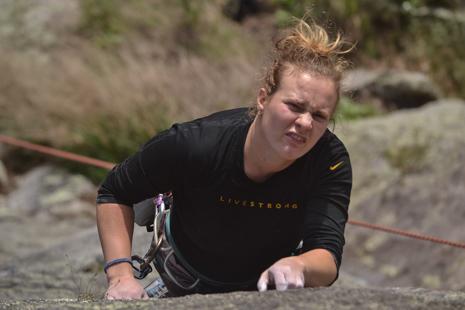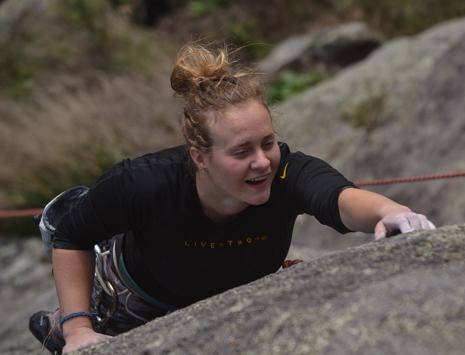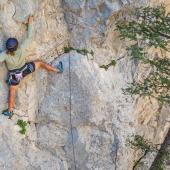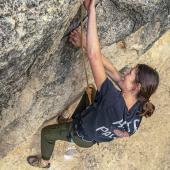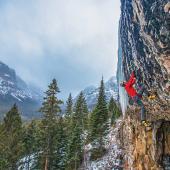Vocal Pump
The hype behind climbing lingo.
Like all outdoor sports, climbing has its own jargon, and the terminology can be overwhelming. If you’ve ever been around a climber or hung out at Spire, you know what I’m talking about. In a given exchange, enough superfluous vocabulary is thrown around that a non-climber might comprehend half, at most. If you’re new to the scene, good luck keeping up. But fear not—the loudmouth spouting every piece of slang in his lexicon was at one time just as confused as you, and just because he can talk the talk, doesn't mean he can send the rock.
Recently, some friends and I spent the weekend climbing at Revenue Flats. On the second morning, while flaking out rope and scouting our routes, another group stopped at the crag. We swapped small talk while getting ready; it was a pleasant interaction, as most outdoor encounters are. Then I asked the fateful question: “What do you guys think of the climbing around here?” Now, to the ordinary person, this question may seem commonplace. However, to a climber, this is an opportunity to show off—the more climbing verbiage you use, the cooler and more talented you must be.
“Well the routes around here are pretty sandbagged. The wall back that way has a super run-out pitch that turns into choss at the end. I was way pumped by the time I reached the chains—couldn’t even find a jug to rest on so I ended up whipping like 20 feet. Decided to come back here today and redpoint these climbs, got some buddies coming up to TR them later.”
Laughing to myself, I looked at my friend Elena, just getting her climbing-shoe-cramped feet wet. As expected, she was utterly perplexed and looked at me like the guy was drunk. Familiar with her confusion, I gave her a knowing smile—in climbing, tossing around obscure dialect is sometimes the name of the game. You don’t have to be strong or have good technique, but if you know the lingo, you fit right in.
Now, not all climbing lingo is meaningless—in fact, much of it serves a purpose. For instance, if my partner informs me that the crux of a climb is super-exposed with only slopers for holds (rounded holds with little positive surface to grab), then I'll probably let him lead, as he has more experience. However, many climbers immerse themselves in the language, focusing on the lingo rather than the rock. These people are known as “beta blasters,” and when they talk, you'll think you need a translator. If you find yourself confused, don’t be shy—just ask. A good climbing partner will give you beta (information) in terms you’ll understand, and the more you climb, the faster you’ll be able to parse through the bullshit and enjoy the climb.
Learning any new sport requires certain awkward rites of passage, and feeling a little lost in the lingo might be one of them. At the end of the day, actions speak louder than words, and by the time you get the hang of climbing, you won't need any catchy jargon to impress your fellow rock-rounds. Keep that in mind the next time someone tells you that "it’s pretty sloppy plopping but if you chicken wing your way up to the corner, place that copperhead, and throw a dyno deadpoint to the fatty horn, you should be static from there."

